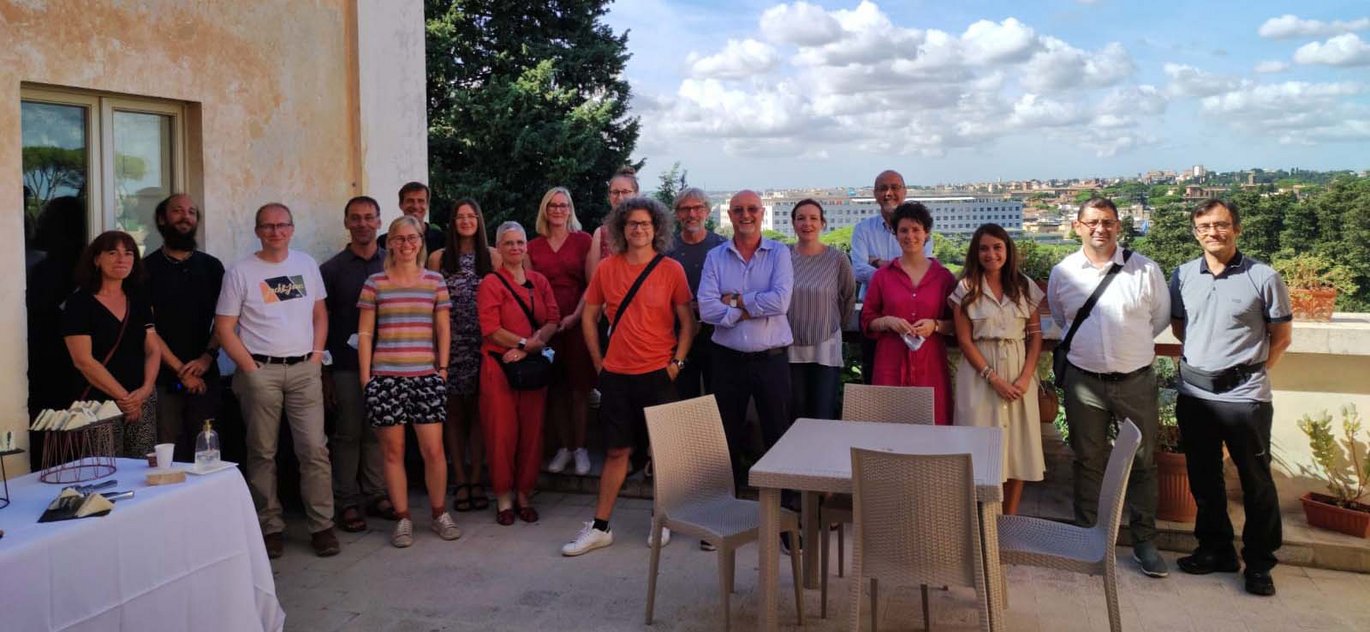Innovative systems for organic greenhouse production: transnational European project just ended
The GREENRESILIENT project (Organic and bio-dynamic vegetable production in low-energy GREENhouses – sustainable, RESILIENT and innovative food production systems), which ran from April 2018 to October 2021, demonstrates that an agroecological approach to greenhouse production is feasible and allows the establishment of robust agroecosystems in different European areas.

The project brought together researchers from eight European countries (Austria, Belgium, Denmark, France, Italy, The Netherland, Sweden, Switzerland) to test agroecosystems in protected conditions. Using systems approaches, partners compared innovative production systems against more intensive so-called “business as usual” systems at five experimental sites (Belgium, Denmark, France, Italy and Switzerland) to identify which systems were able to maintain high and stable production with low environmental impacts.
The innovative systems were selected primarily based on agroecological practices usually implemented in open field conditions at different latitudes (extended crop rotations, intercropping, transfer mulch, short term green manure species, flower strips, etc.). The systems were evaluated on the basis of the agronomic results, the availability of nutrients and their synchronization with the plant needs, the microbial biomass and activity, the belowground (nematode and microbial) and aboveground (soil arthropods and spontaneous flora) diversity. A life cycle assessment (LCA) was conducted to assess the environmental impact of the various products and systems at the five experimental sites, during their entire life cycle.
A huge amount of data has been collected by the project partners and results were presented and discussed during the last Greenresilient meeting held in Rome on the 21st and 22nd of September 2021. Without detailing all of the results obtained, some considerations can be made:
- the introduction of winter leafy crops in the rotation is a viable option for frost-free greenhouses in the winter months as frost resistance of different cultivated species was confirmed. However, it is important that these crops are sown at the right time in order to guarantee an adequate and sustainable yield during winter;
- crop diversification and alternative fertilization strategies in innovative systems sustained crop productivity without significant yield losses compared to business as usual (BAU) systems. However, they did not consistently result in higher nitrogen utilization in the short-term;
- Agroecological service crops (ASCs) introduced in innovative systems increased plant nitrogen availability in the plant-soil system in all trial locations and cropping systems.
- The introduction of ASCs promoted the presence and diversity of weeds in the rotation, while not presenting an increased risk of competition with crops. Similarly, the introduction of new management systems resulted in a higher diversity of weeds with less dominance of few species.
- a comprehensive survey of microbial and nematode biodiversity and community structure showed some signs indicating shifts of functional groups during the two-year period of observation.
The project produced a series of innovative factsheets and videos, which provide practical information in several languages:
Factsheets
- Flower strips: a tool for pest control in greenhouses
- Transfer mulch in organic greenhouses
- Taste of Winter: tips and recipes for winter leafy greens
- Wintamines: how to grow winter vegetables
- Nematodes as suitable indicators for soil health
- Agroecological service crops in Southern European greenhouse
Videos
- How to assess weed biodiversity: exploiting weeds' functionality in greenhouses
- How to monitor soil health with DNA-metabarcoding of Nematode communities
- Innovative production in the greenhouse: flower strips, mixed crops, plant mulch
- How to set a pitfall trap to assess spiders and predatory beetles
Relevant link(s)
All project publications are available on Organic Eprints.
More information can be found at the project website: www.greenresilient.net
Author(s) info
Dr. Fabio Tittarelli
Consiglio per la ricerca in agricoltura e l’analisi dell’economia agraria,
Centro di ricerca Agricoltura e Ambiente/Research Centre for Agriculture and Environment CREA – AA
Via della Navicella 2-4, 00184 Rome, Italy
Phone: +39-06-7005413 Ext 241, Fax +39-06-7005711
E-mail: fabio.tittarelli@crea.gov.it
Editor: Karin Ullven / Design: Anton Brander Lichtenberg
